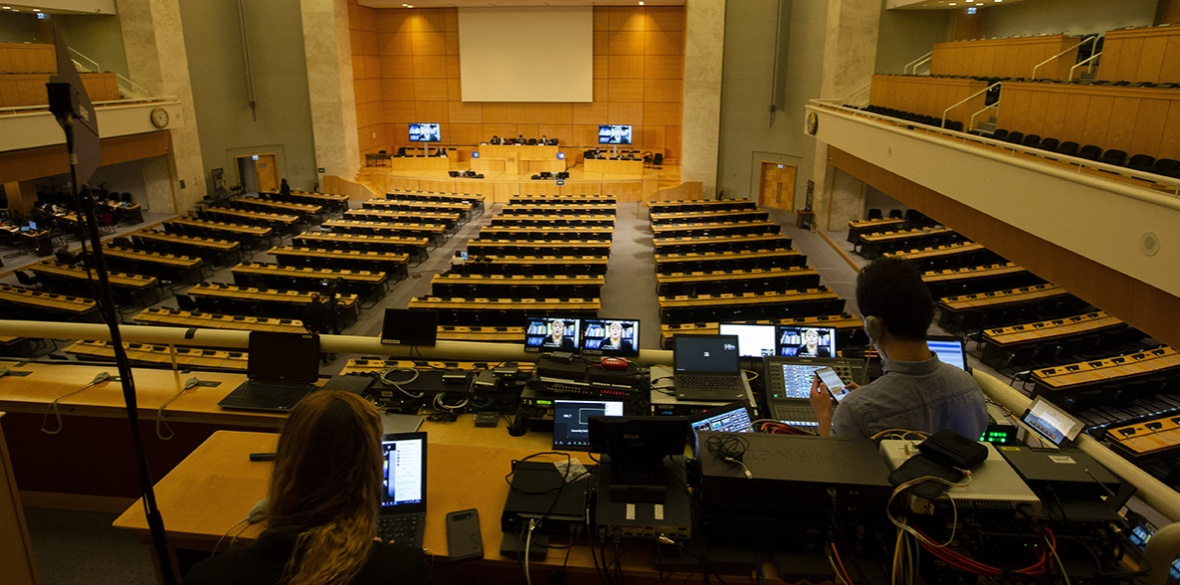This is the last article you can read this month
You can read more article this month
You can read more articles this month
Sorry your limit is up for this month
Reset on:
Please help support the Morning Star by subscribing here
CHINA launched a robust defence of its rights record in Xinjiang today, saying minorities both there and in Tibet provided a “shining example” of development.
Foreign Minister Wang Yi was speaking at a forum ahead of a meeting of the United Nations human-rights council (UNHRC) in which both Britain and the United States made allegations of abuses.
Mr Wang said China was “always committed” to protecting human rights and cited the growth of per-capita GDP and life expectancy in the regions as evidence that rights were being safeguarded.
“We believe that the rights to subsistence and development are basic human rights of paramount importance,” he said.
But Britain’s Foreign Secretary Dominic Raab used the country’s return as a voting member of the UNHRC to regurgitate claims that one million people are being held in torture camps in Xinjiang, with members of the Uighur community subjected to forced labour and forced sterilisation.
“[Rights abuses] are taking place on an industrial scale,” he said.
But evidence for such assertions is highly contested, with numerous anecdotal claims made by individuals with alleged links to terrorist organistions or, in one case, a member of the US intelligence service being widely repeated in Western media.
Most of the accusations are based on reports made by one person, Adrian Zenz, a self-styled expert on Xinjiang who believes he is on a mission from God to save the world from “Chinese communism.” Mr Zenz, who first coined the “one million” figure for the number of detainees, based it on interviews with just eight individuals.
Another source of allegations is the World Uighur Congress (WUC), an organisation that has received more than $8 million from Washington’s National Endowment for Democracy since it was established in 2004. Its leaders are linked to Islamist terror organisation the East Turkestan Islamic Movement (ETIM), now the Turkestan Islamic Party (TIP) (ETIM/TIP), which fought with jihadists in Syria and seeks to establish a caliphate in Xinjiang province.
Washington’s new cold war on China has seen it adopt an increasingly aggressive stance, with President Joe Biden’s administration committing millions of dollars to military spending aimed at containing Beijing.
But countries not aligned with the US have cast doubt on its claims following diplomatic visits to Xinjiang. In a letter to the UN in 2019, 37 diplomats, most from Muslim-majority countries, praised China’s commitment to openness, adding that what they saw and heard in Xinjiang completely contradicted what had been reported in some Western media.
Mr Wang said he hoped Western countries would stop intefering in China’s internal affairs and “stop smearing the Communist Party of China and China’s political system.”










